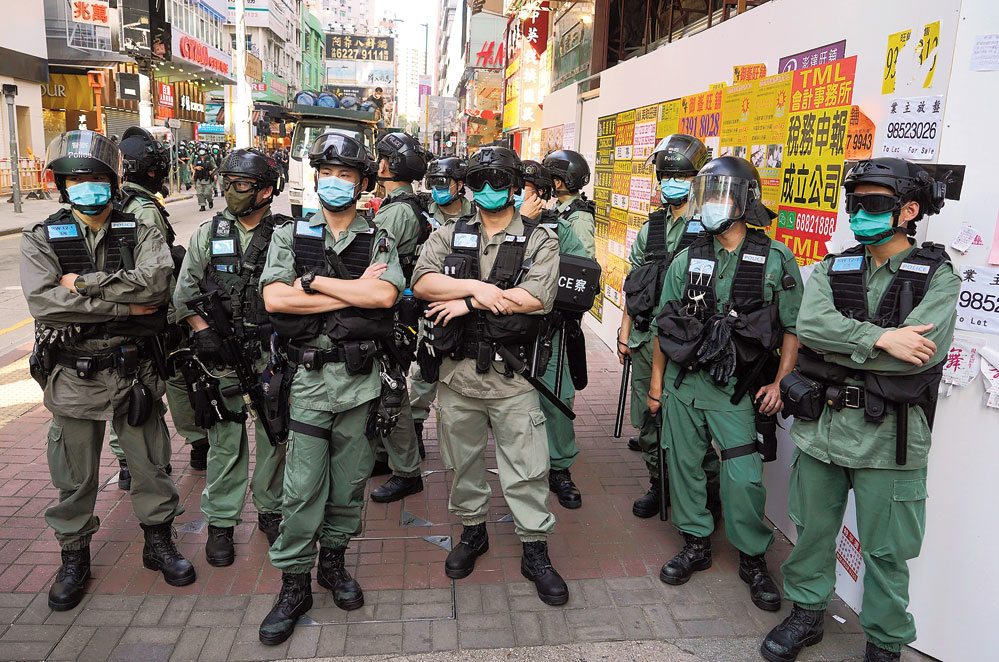China’s Communist Party has long pursued its agenda in Hong Kong by working through loyalists among the city’s top officials, lawmakers and tycoons. That behind-the-scenes approach was a key feature in preserving considerable autonomy for the territory.
Now, as the party prepares to grab more power in Hong Kong after months of sometimes violent unrest last year, it has pushed aside even its own allies in the city. The party’s strategy sends a clear message to Hong Kong: In quashing challenges to its authority, Beijing won’t hesitate to upend the delicate political balance at the core of the city’s identity.
Party-appointed lawmakers in Beijing are expected to pass a sweeping security law for Hong Kong on Tuesday. Yet few among the city’s Beijing-backed establishment, even at the highest levels, appear to have seen a draft. Its top leader, Carrie Lam, and secretary for justice, Teresa Cheng, have both acknowledged knowing little about the law beyond what has been reported in the news.
“Your guess is as good as mine,” Cheng said earlier this month.
The sidelining of Hong Kong’s elite is the latest sign that in his pursuit for power, China’s top leader, Xi Jinping, is willing to defy political norms established over decades, and will do so swiftly and secretively. Xi’s decision to have Beijing take charge points to how deeply the months of protests in Hong Kong have unsettled his administration’s confidence in its handpicked allies in the city.
“There was a mood among mainland officials that we needed a second handover of Hong Kong to China, and we’re moving towards that,” said Jean-Pierre Cabestan, a political science professor at Hong Kong Baptist University. “I don’t think Beijing trusts the Hong Kong elites any more.”
Even before Britain returned Hong Kong to Chinese sovereignty in 1997, Beijing was cultivating ties with tycoons who had fled communism in China for the city and built vast fortunes in trading, banking, real estate and industry. The tycoons, together with British-trained civil servants, later formed the establishment Beijing entrusted with running the city alongside an independent judiciary, police, academic system and capitalist model.
The elite have served as Beijing’s eyes and ears. They have defended the Communist Party’s interests by promoting patriotism and pushing through unpopular laws, including one earlier this month that criminalised disrespect of the national anthem.
But the establishment has struggled to balance Beijing’s desire for control with residents’ demands to preserve the autonomy that has shielded them from the mainland’s feared security services and opaque, often harsh legal system.
When protests erupted last summer, the city’s leadership was responsible for trying to quell it but was not empowered by Beijing to make major concessions, resulting in an impasse. The pro-Beijing camp now also sees the Communist Party’s new assertiveness as a sign of its impatience with the local establishment’s failure to pass national security laws on its own.
Beijing also increasingly recognises that the influence of its pro-business allies has fuelled public anger over the small pensions and costly housing that have made Hong Kong one of the most unequal places in the world. Support for the pro-Beijing camp has fallen to record lows: They suffered a resounding defeat in local district elections in November, and could see potentially heavy losses in legislative elections in September.
The party’s push for more overt control throws into question the role of Hong Kong’s elite in the coming months and years. Establishment figures now find themselves in the awkward position of having to defend a law they have not seen in detail, amid growing pressure from Beijing to demonstrate loyalty.
The Chinese government crafted the national security plan this spring with such stealth to prevent the city’s tycoons and professionals from lobbying against it.
New York Times News Service











